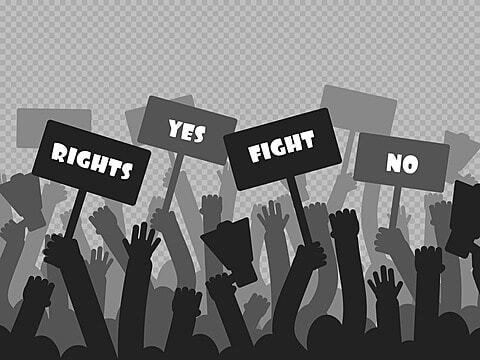The Pros and Cons of Political Term Limits: Striking a Balance
In the world of politics, the concept of term limits has been a subject of extensive debate. Term limits, as the name suggests, are restrictions on the number of times an individual can hold a specific political office. While the idea behind term limits is to promote fairness, accountability, and fresh leadership, there are both advantages and disadvantages associated with their implementation. This article explores the potential benefits and drawbacks of political term limits, shedding light on the complexities of this contentious issue.
The Advantages of Political Term Limits
Political term limits, which restrict the number of times an individual can hold a specific political office, offer several significant advantages in the realm of governance.
Firstly, these limits promote accountability among elected officials. Knowing that their time in office is finite, politicians are incentivized to work diligently to fulfill their promises and enact positive changes during their tenure. This heightened accountability helps to maintain public trust in the political system, as citizens can expect their representatives to be responsive and responsible.
Secondly, term limits
governance and politics the entrenchment of power. Without such limits, some politicians may accumulate years, if not decades, in office, leading to stagnation and resistance to new ideas and reforms. Term limits disrupt this cycle, allowing for fresh faces and perspectives in politics. This, in turn, encourages innovation and adaptability within the government.
Furthermore, these limits can serve as a bulwark against corruption. Lengthy stays in office can create opportunities for politicians to amass power and influence, making them more susceptible to corrupt practices. Term limits help mitigate this risk by mandating a change in leadership, reducing the likelihood of political stagnation and corruption.
Lastly, they encourage civic engagement by providing opportunities for a wider range of individuals to participate in politics. When citizens know that elected positions are not monopolized by a select few, they are more likely to engage in the political process, leading to a more diverse and representative government.
In sum, political term limits, by promoting accountability, preventing power entrenchment, reducing corruption, and encouraging civic participation, play a crucial role in fostering a healthier and more dynamic political landscape.
Promoting Accountability
Term limits encourage politicians to work diligently during their limited time in office, as they are aware that their tenure is temporary. This can lead to greater accountability as elected officials strive to make a positive impact in a shorter span.
Preventing Entrenched Power
Without term limits, some politicians may become entrenched in power, leading to stagnation and resistance to change. Term limits disrupt this cycle, allowing for fresh perspectives and new ideas.
Reducing Corruption
Long-serving politicians may be more susceptible to corruption due to their extended time in office. Term limits can mitigate this risk by preventing individuals from amassing too much power over time.
Encouraging Civic Engagement
Knowing that they have a chance to participate in public office, citizens are more likely to engage in the political process. Term limits open up opportunities for a wider range of individuals to get involved in politics.
The Drawbacks of Political Term Limits
One significant drawback is the
political news today loss of experienced leaders. Elected officials who have proven themselves effective may be forced to step down due to term limits, resulting in a void of expertise. This loss of institutional knowledge can hinder the government's ability to make informed decisions and effectively address complex issues.
Another drawback is the constant turnover that term limits introduce. Frequent changes in leadership can lead to a lack of continuity in government policies and projects. This can impede long-term planning and execution, making it challenging to achieve sustained progress.
Additionally, term limits can produce ineffective beginners. Newcomers to politics may need time to learn the intricacies of governance, and term limits limit their ability to gain valuable experience. This could lead to less experienced and less effective governance.
Lastly, when experienced politicians leave office due to term limits, they may be replaced by individuals who are more susceptible to lobbyist influence. These less seasoned politicians may lack the knowledge and experience to resist undue pressure, potentially compromising the integrity of decision-making.
In summary, while
state and politics term limits aim to address certain issues, they can also result in the loss of experience, constant turnover, ineffective governance, and increased susceptibility to external influence.
Loss of Experience
One significant drawback of term limits is the potential loss of experienced leaders. Elected officials who have proven themselves effective may be forced to step down, leaving a void of expertise.
Constant Turnover
Frequent turnover due to term limits can result in a lack of continuity in government policies and projects. This can hinder long-term planning and execution.
Ineffective Beginners
Newcomers may need time to learn the intricacies of politics, and term limits can limit their ability to develop into effective leaders, leading to less experienced governance.
Lobbyist Influence
When experienced politicians leave office due to term limits, they may be replaced by less knowledgeable individuals who are more susceptible to lobbyist influence, potentially compromising the integrity of decision-making.
Striking a Balance
The debate over
world politics news term limits is not a straightforward one. It requires careful consideration of both the advantages and disadvantages. Striking a balance between accountability and experience is essential. Perhaps a compromise could involve allowing for longer terms with the possibility of reelection but not indefinite re-election.
In conclusion, political term limits have the potential to bring both benefits and drawbacks to a democratic system. While they can promote accountability, prevent power concentration, and reduce corruption, they may also lead to the loss of experienced leaders and constant turnover. The key lies in crafting term limit policies that maintain a balance between these competing factors, ensuring a healthy and vibrant political landscape.

















